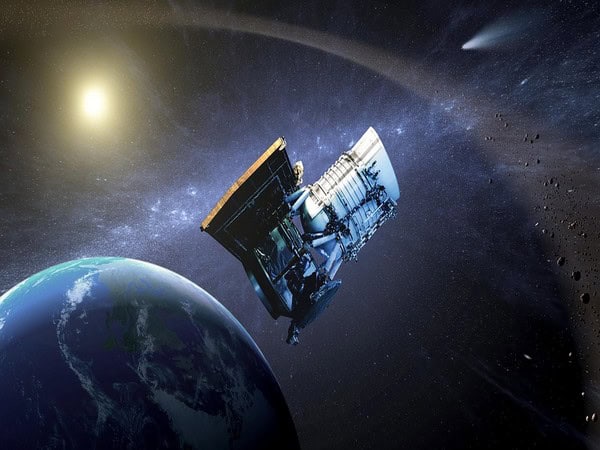Los Angeles: Blue Origin, the US aerospace company owned by Amazon founder Jeff Bezos, has launched its suborbital New Shepard rocket and space capsule.
The mission on Sunday marked the company’s first test flight of the year and second flight of the New Shepard 2.0 spacecraft, Xinhua news agency reported.
Thunderstorms have delayed Sunday’s planned launch of Blue Origin’s New Shepard 2.0 spacecraft. The vehicle, named after the first American in space, Alan Shepard, lifted offfrom its West Texas test site.
“Another spectacular test mission,” Ariane Cornell of Blue Origin said during a launch webcast. “Today, we’re going to push the system a little bit harder.”
Blue Origin launched New Shepard to a target altitude of about 107 km, slightly higher than the company’s typical target of about 100 km, the altitude widely accepted as the boundary line for space.
“Apogee of 351,000 feet (66 miles, 107 km), and that’s the altitude we’ve been targeting for operations. One step closer,” billionaire Bezos tweeted.
New Shepard is a reusable vertical takeoff, vertical landing space vehicle, consisting of a pressurized capsule atop a booster.
Several minutes after lift-off, the booster made a successful vertical landing. The capsule fell back to Earth a few minutes later, descending on parachutes and cushioning its own landing with retrorockets.
“Touchdown of the New Shepard Booster and Crew Capsule! Congrats to Team Blue and our payload customers on board today!” the company tweeted.
This is Blue Origin’s eight spaceflight since the company began flight testing New Shepard vehicles. The first New Shepard 2.0 launch occurred in December 2017, with six other flights launching on a predecessor New Shepard, which Blue Origin has since retired.
Blue Origin tweeted that dummy astronaut, affectionately nicknamed “Mannequin Skywalker” was on board New Shepard for his 2nd mission. “He’s a little sensitive about being called a ‘dummy’, as he will be conducting astronaut telemetry and science studies – a very important job!”
In addition to the test dummy astronaut, the mission also carried many commercial payloads on board New Shepard for in-space science and technology demonstrations. These payloads represent a range of users, from NASA’s Johnson Space Center to a small commercial communications firm, as well as the company’s first European customers, funded by the German national space agency, DLR.
“Earth is the best planet in our solar system. We go to space to save the Earth,” Bezos tweeted on Earth Day.
The company is working on a larger rocket called New Glenn that could directly compete with SpaceX for commercial launch contracts, but it isn’t expected to be ready until 2020.
New Shepard 2.0 space capsule is designed to fly commercial payloads and up to 6 passengers on suborbital space flights for science and tourism. The capsule features giant windows to give future passengers a stunning view of their launch into space.
IANS

